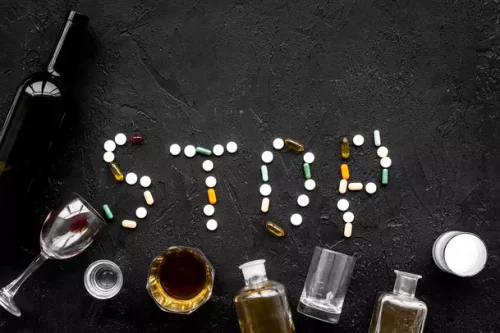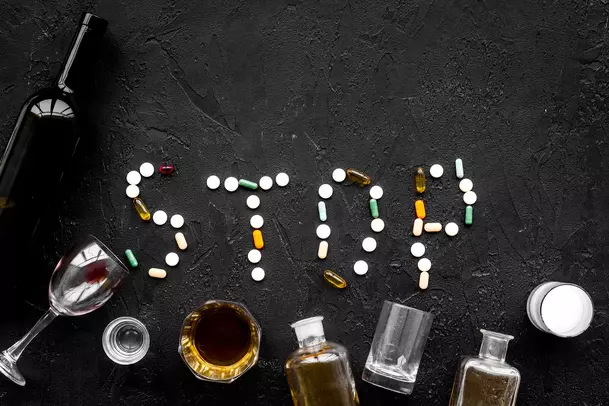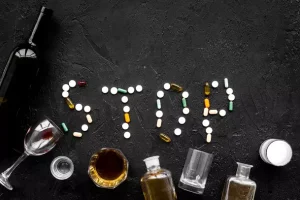
Alcohol consumption spans a spectrum ranging from low risk to severe alcohol use disorder (AUD). Unstable vital signs increase the risk of complications and can be managed with medications. People who experience severe withdrawal symptoms or DTs may require hospitalization or intensive care unit (ICU) treatment during alcohol. Alcohol withdrawal syndrome drug addiction can range from mild to severe, depending on the person’s mental health, physical health, and the severity of the addiction.

Prevention
Use of this website and any information contained herein is governed by the Healthgrades User Agreement. Contact your doctor for more information about what happens to your body during alcohol withdrawal. Additionally, the activation of brain and nerve cells can result in hyperexcitability. However, it is important to note that the exact timeline for withdrawal symptoms can differ for each person. People having experienced alcohol withdrawal may suffer from sleep problems or minor signs of an overactive nervous system, such as fastened heartbeat, agitation, or sweats, for a few months.
- Choose a symptom and answer simple questions using our physician-reviewed Symptom Checker to find a possible diagnosis for your health issue.
- Generally, you may need treatment for alcohol misuse when you can no longer control the amount you drink or how long you drink.
- This is alcohol withdrawal, and it causes uncomfortable physical and emotional symptoms.
- Alcohol withdrawal exists within the context of long-term alcohol dependence.
Alcohol Withdrawal Symptoms: Timeline and Detox
- It’s best to be in a calm and controlled environment to reduce the risk of symptoms progressing toward hallucinations.
- However, you may find that your symptoms continue for longer, even up to a few weeks to months.
- Alcohol withdrawal causes a range of symptoms when a person with alcohol use disorder stops or significantly decreases their alcohol intake.
- In this stage, individuals might struggle with ongoing issues like sleep disturbances and fluctuations in their mood.
- Membership in these communities cultivates feelings of inclusion and assists members in remaining dedicated to their path toward recovery.
- It slows down brain function and changes the way your nerves send messages back and forth.
- Multiple dosing strategies have been utilized in the management of AWS.
The early signs of alcohol withdrawal, which are typically more mild, include anxiety, headache, sweating and night sweats, nausea, insomnia, and tremors. Individual alcohol withdrawal syndrome symptoms and group therapy, alongside engagement in support groups such as Alcoholics Anonymous and the inclusion of family members, are vital components for a successful long-term recovery from alcohol withdrawal. This approach minimizes the risk of severe withdrawal symptoms and promotes safer recovery. The involvement of family plays a critical role in aiding recovery, providing both emotional support and tangible aid for individuals grappling with alcohol withdrawal.
- If you’re experiencing alcohol withdrawal, your body might be going through an array of uncomfortable physical and mental changes.
- The symptoms of alcohol withdrawal will typically begin within 6–12 hours of stopping drinking alcohol.
- To successfully manage alcohol withdrawal, it’s important to engage in a medically supervised detoxification process, utilize appropriate medications, and receive supportive care.
- Anyone that thinks they are dependent on alcohol should consider speaking to a doctor.
- Alcohol withdrawal syndrome can range from mild to severe, depending on the person’s mental health, physical health, and the severity of the addiction.
- Your healthcare provider will determine the right treatment plan for you.
Effects of Alcohol, Binge Drinking & Withdrawal Symptoms Your Room

The first goal of treatment is to keep you comfortable by managing your symptoms. Your doctor’s treatment goal is helping you stop drinking as quickly and safely as possible. A high fever, hallucinations, and heart disturbances are all reasons to seek immediate help. There are many support options available that can help guide you through alcohol withdrawal, as well as abstaining from alcohol after withdrawal. People who drink daily or almost every day should =https://ecosoberhouse.com/ not be left alone for the first few days after stopping alcohol. Withdrawal symptoms can quickly go from a bad hangover to a serious medical situation.

Role of GABA and Glutamate
When a person stops drinking suddenly, their body experiences a degree of shock as the nervous system struggles to adapt to the lack of alcohol, which can lead to alcohol withdrawal syndrome. It is critical to seek advice from healthcare professionals who are equipped to devise detoxification strategies that cater specifically to personal requirements. By carefully tapering off alcohol intake, the body has an opportunity for gradual adjustment, diminishing the potential for severe withdrawal effects. Continuous use of alcohol can majorly change the brain’s chemical balance, making individuals more prone to experience intense withdrawal symptoms when they stop drinking.
Alcohol withdrawal management SA Health
The production of these neurotransmitters is affected when a person stops or significantly reduces alcohol intake. Alcohol withdrawal is caused by the abrupt cessation of alcohol consumption in patients with alcohol dependence or chronic alcoholism. Alcohol withdrawal syndrome (AWS can cause a range of symptoms, from mild anxiety and fatigue to severe hallucinations and seizures. In extreme cases, it can be life threatening. If your blood pressure, pulse, or body temperature rises, or if you have more serious symptoms like seizures and hallucinations, seek medical care immediately (dial 911). It’s a good idea to see your doctor first if you want to quit or stop drinking alcohol. It’s also helpful to have an action plan and a support network to help you achieve your goals.


0 Responses to Identifying the Symptoms of Alcohol Caron Treatment Centers